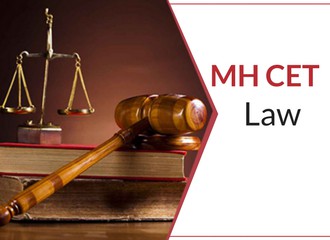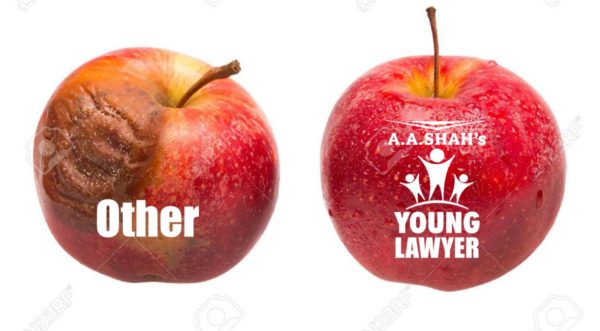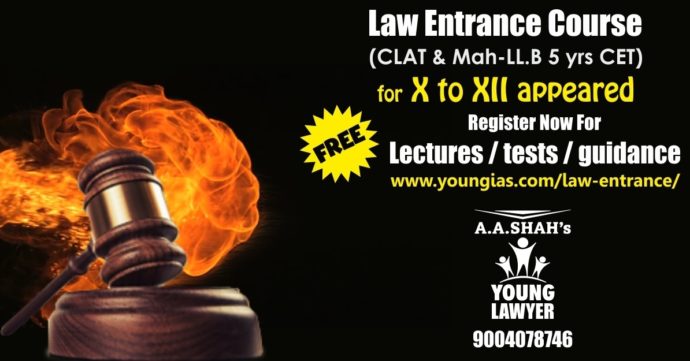Subscribe now our Youtube channel
https://www.youtube.com/channel/UCMq2SUsRC7cJ9IR4mK2-lyA
for FREE Daily Live interactive discussion & explanation on Legal Reasoning, Logical Reasoning, Mathematics, General Knowledge / Current Affairs.

Register now for FREE Lectures/ Tests / Guidance
https://www.youngias.com/register-for-free-lectures-tests-guidance/
Index
* Why career in law is one of the best options?
* What are the Law Entrance Exams?
* What is MAH-LL.B 5 Years CET?
* List of Law colleges in & around Mumbai?
* Eligibility for Mah-LL.B 5 Yrs CET
* Mah-LL.B 5 Yrs CET: Exam Pattern & Syllabus
* What is the ideal time to start preparation for Mah-LL.B 5 Yrs ?
* Important instructions to law aspirants
* I am interested in Law Entrance Courses
Career in Law
Why career in law is one of the best options?
The ambition to enter profession of law is usually drawn from inspiration either from non-fictional personalities (e.g. family members, friends) or some fictional personalities (Bollywood actors as lawyers, for eg., Amitabh Bachchan (Pink), Akshay Kumar (Rustom), or characters from novels such as Rudy Baylor/Atticus Finch, etc.); or from the belief that ONE PERSON CAN MAKE A DIFFERENCE.
There are several advantages of taking up Law as a profession. All that is to be done is to prepare for LAW entrance exams and join a good, reputed Law college. Considering the following advantages, one should be clear that why he/she should opt for law. These are:
1. It inculcates leadership qualities:
Nowadays lawyers aren’t just taught the tenets of law, they are taught how to be a good leader and how to lead the world. The ability to make decisions based on facts and reasoning, rather than emotions, is an integral part to success in the profession of law and holds even more value out of the court room. A great leader has the ability to make the hard choices putting the interests of his client first.
2. Plethora of choices:
It is the thing of the past that a Lawyer had to choose a career in either Criminal or Civil. Nowadays a Law Graduate has a lot of options to choose from mainly;
- Litigation – Criminal Laws, Civil Laws, Taxtion, Corporate, Commercial, Mediation, Human Rights, Intellectual Property Rights, Environment, Cyber, Intellectual Property (Trademarks, Copyrights, Patents) and many more.
- Law Firms – Corporate advisory, Mergers & Acquisitions, Tax Practice, Litigations.
- Chamber Prctrice – In-house counselling
- Others – Judiciary, Civil Services, Teaching, Legal Journalism etc.
3. Placements:
Students of top Law Colleges don’t have to go for job hunting, as there are appropriate opportunities that will seek them out. Every year the best law firms in the country and top Corporate Houses set placement targets for their HR teams, with hefty packet, to ensure that they do not miss out on the top talent in the country.

How to get admission in law course?
Admission in law course is on the basis of Entrance Exam. There are various entrance exams conducted for admission in different colleges / universities. 12th appeared students are eligible for entrance exam. However, eligibility criteria for each entrance exam is different.
What are the Law entrance exams?
| CLAT | Conducted once in a year on rotational basis by 21 National Law University (NLU) for LL.B. and LL.M |
|---|---|
| LSAT India | Conducted 4 times every year specially designed for LLB and LLM admissions. |
| AILET | Conducted exclusively for National Law University (NLU) Delhi |
| DU LLB | Conducted by Delhi University |
| MAH-LLB | Conducted once in a year by Government of Maharashtra, State Common Entrance Test Cell |
| BHU-UET | Banaras Hindu University Undergraduate Entrance Test is conducted by Banaras Hindu University |
| AIBE | The All India Bar Examination, one need to clear this exam to be eligible to practice law in India |
What is CLAT?
The Common Law Admission Test (CLAT) is conducted every year by one of 21 National Law Universities in India on rotating basis for admitting students in these universities.
What is LSAT India?
The Law School Admission Test (LSAT) is an integral part of law school admission in the United States, Canada, and a growing number of other countries. The LSAT is designed specifically to assess key skills needed for success in law school, including reading comprehension, analytical reasoning, and logical reasoning.
What is AILET?
AILET stands for All India Law Entrance Test and CLAT stands for Common Law Admission Test. AILET and CLAT both are the two most sought-after law entrance exams of the country.
What is DU LLB?
University of Delhi, on behalf of its Faculty of Law conducts Delhi University LLB Entrance Test, commonly known as DU LLB Entrance.
What is MAH-LLB?
State Common Entrance Test Cell of Government of Maharashtra conducts entrance test MAH-LLB for admission in law courses.
What is BHU-UET?
BHU Law Entrance Exam is a university level examination organized by the Banaras Hindu University (BHU).
What is AIBE?
AIBE, also known as All India Bar Examination, is an assessment test conducted at national level by Bar Council of India for the candidates who hold an LLB degree from recognized Law institution for their enrolment at Bar to enable them to practise law in the Courts in India.
Maharashtra Common Entrance Test – LAW
MH-CET (LAW)

In 2016, Directorate of Technical Education, Maharashtra introduced a common entrance test, for students seeking admissions to the government law colleges in the state. The Directorate of Technical Education conducts the online exam to select students for the five year Integrated Law Program after class XII and three year law program after graduation. Every year, nearly 15,000 students appear for MH-CET (5-year Law).
What is the difference between CLAT and MH-CET (Law)?
Common Law Admission Test (CLAT) is the most coveted of all the law entrances in India after Class XII. CLAT is conducted every year to select students for 21 National Law Universities in India, other than National Law University, Delhi, which conduct its own entrance test (AILET), to select the students.
MH-CET (Law) is an entrance test for students seeking admissions to the law colleges in Maharashtra state. DTE conducts the online exam to select students for the five year Integrated Law Program after class XII and three year law program after graduation.
What are the eligibility criteria for MH-CET (Law) for undergraduates?

The Eligibility Criterion for undergraduates i.e. Five Year Integrated Degree Course (LL.B-5 Yrs.) are as under:
1. Maharashtra State Candidature: ––
The Candidates passing SSC and HSC Examination from a recognized institution in Maharashtra State or the candidates passing equivalent examination (such as 11+1, A level in Senior Secondary School Leaving Certificate Course) from a recognized University of India or outside or from Secondary Board or equivalent, constituted or recognized by the Union or by a State Government, which is in Maharashtra.
Such Maharashtra State candidates are divided into various groups (Types) as mentioned below:
| Maharashtra State Candidature Sub-Type | Eligibility Criteria for Maharashtra State Candidature Type. |
|---|---|
| (Type-A) | a candidate who is Domicile of Maharashtra or Born in Maharashtra, or |
| (Type-B) | the Father or Mother of the Candidate is Domiciled in the State of Maharashtra, or |
| (Type-C) | the Father or Mother of the Candidate is an employee of the Government of India or Government of India Undertaking who is posted and reported to duty in Maharashtra State before the last date for submitting the Application Form for CAP, or |
| (Type-D) | the Father or Mother of the Candidate is an Employee of the Government of Maharashtra or Government of Maharashtra Undertaking, or |
| (Type-E) | the Candidates passing SSC and or HSC Examination or Equivalent Examination from a recognised institution from a disputed Maharashtra Karnataka Border Area and whose Mother tongue is Marathi |
2. All India Candidature: –
The Candidates having Indian Nationality are eligible under this Category.
3. Minority Candidature :-
The Maharashtra State domiciled Candidate belonging to a particular Linguistic or Religious Minority Community from within the State and as notified by the Government are eligible under this Category.
4. NRI Candidature :-
The Candidate who fulfills the conditions as defined in clause (n) of section 2 of the Act are eligible under this Category.
5. Foreign Student or OCI or PIO Candidature :-
The Foreign Student Candidates, as defined in clause (i) of section 2 of the Act, the Overseas Citizen of India (OCI) Candidate, as defined under clause (n) of rule 2 and Persons of Indian Origin (PIO) as defined in clause (o) of section 2 of the Act are eligible under this Category.
6. Jammu and Kashmir Migrant Candidature. —
- The children of citizens, who are displaced from Jammu and Kashmir to any part of India or from unsafe border area of Jammu and Kashmir to a relatively safer place in Jammu and Kashmir from 1990 onwards due to terrorist activities; or
- The children of officers belonging to Indian Administrative Services (IAS) or Indian Police Services (IPS) or Indian Foreign Services (IFS) and children of staff belonging to military and paramilitary forces transferred to Jammu and Kashmir to combat terrorist activities and joined the post on or before the last date for submission of application for admission; or
- The children of staff and officers of Jammu and Kashmir police engaged in combating terrorism; are eligible under this category.
Further eligibility conditions and requirement for admissions to MH-CET LLB-5 Years Full time Regular Integrated Undergraduate Degree Course are detailed below:-
There is no upper age limit at present for admission to LLB-5 Yrs. Course in view of the cases pending in Hon. Supreme Court of India, and the order passed by the Hon. High Court, Bombay in W.P. No 3235 / 2016. The admissions to LLB-5 Yrs. Course will be subject to the final outcome of the various writ petitions pending before various Hon. Courts.
| Course | Eligibility condition and requirement for admissions: |
|---|---|
| First year of LL.B 5 years Degree | For Maharashtra State Candidature Candidates: - 1. The candidate should be an Indian National; 2. An applicant who have successfully completed Senior Secondary School course(‘+2’) or equivalent such as (11+1, ‘A’ level in Senior School Leaving Certificate Course) from a recognized University of India or outside or from Senior Secondary Board or equivalent, constituted or recognized by the Union or by a State Government or from any equivalent institution from a foreign country recognized by the Government of that country for the purpose of issue of qualifying certificate on successful completion of the Course Examination, with minimum of 45% Marks in aggregate. (SC and ST Category candidates belonging to the State of Maharashtra with valid Caste Certificate from State of Maharashtra with minimum 40% Marks in aggregate); 3. The Applicant who have obtained +2 Higher Secondary Pass Certificate or First Degree Certificate after processing studies in distance or correspondence method is eligible for the course; Provided that, the applicants who have obtained 10+2 through Open/Distance system directly without having any basic qualification are not eligible. Further provided that, applicants who have obtained 10th std./ Secondary Schooling Certificate Examination, in a single sitting examination without having basic qualification (1st to 9th Standard of Schooling) is not eligible. 4. An applicant who has passed the 11th (old Pattern)/ 12th std./ Pre Degree Course (Old Pattern) examination from State / Central Boards of schooling or from Open Schooling System/ regular system recognized & established by the Govt. Of the State/India or International Board of School Education, after prosecuting the basic course of studies in the pattern of 1st to 10th standards in Regular mode, at Secondary Schooling is eligible for admission to five year Integrated LL.B. Course. 5. The qualifications of 10th, 12th (+2) and Graduation if applicable may be obtained through any mode (distance / correspondence / Open Schooling System). 6. Non Zero Score in MAH-LLB-5 2018 CET Note: The percentage of marks shall not be calculated by rounding off to nearest integer. |
| First year of LL.B 5 years Degree | All India Candidature Candidates:- 1. The candidate should be an Indian National; 2. An applicant who have successfully completed Senior Secondary School course (‘+2’) or equivalent such as (11+1, ‘A’ level in Senior School Leaving Certificate Course) from a recognized University of India or outside or from Senior Secondary Board or equivalent, constituted or recognized by the Union or by a State Government or from any equivalent institution from a foreign country recognized by the Government of that country for the purpose of issue of qualifying certificate on successful completion of the Course Examination, with minimum of 45% Marks in aggregate. 3. The Applicant who have obtained +2 Higher Secondary Pass Certificate or First Degree Certificate after processing studies in distance or correspondence method is eligible for the course; Provided that, the applicants who have obtained 10+2 through open distance system directly without having any basic qualification are not eligible. Further provided that, applicants who have obtained 10the std./ Secondary Schooling Certificate Examination, in a single sitting examination without having basic qualification (1st to 9th Standard of Schooling) is not eligible. 4. An applicant who has passed the 11th (old Pattern)/ 12th std./ Pre Degree Course (Old Pattern) examination from State / Central Boards of schooling or from Open Schooling System/ regular system recognized & established by the Govt. Of the State/India or International Board of School Education, after prosecuting the basic course of studies in the pattern of 1st to 10th standards in Regular mode, at Secondary Schooling is eligible for admission to five year Integrated LL.B. Course. 5. The qualifications of 10th, 12th (+2) and Graduation, if applicable may be obtained through any mode (distance / correspondence / open schooling method System.) 6. Non Zero Score in MAH-LLB-5 2018 CET Note: The percentage of marks shall not be calculated by rounding off to nearest integer |
| First year of LL.B 5 years Degree | Jammu & Kashmir Migrant Candidature Candidates: - 1. The candidate should be an Indian National; 2. An applicant who have successfully completed Senior Secondary School course (‘+2’) or equivalent such as (11+1, ‘A’ level in Senior School Leaving Certificate Course) from a recognized University of India or outside or from Senior Secondary Board or equivalent, constituted or recognized by the Union or by a State Government or from any equivalent institution from a foreign country recognized by the Government of that country for the purpose of issue of qualifying certificate on successful completion of the Course Examination, with minimum of 45% Marks in aggregate. 3. The Applicant who have obtained +2 Higher Secondary Pass Certificate or First Degree Certificate after processing studies in Distance or Correspondence method is eligible for the course; Provided that, the applicants who have obtained 10+2 through Open/Distance System directly without having any basic qualification are not eligible. Further provided that, applicants who have obtained 10th Std./ Secondary Schooling Certificate Examination, in a single sitting examination without having basic qualification (1st to 9th Standard of Schooling) is not eligible. 4. An applicant who has passed the 11th (Old Pattern)/ 12th std./ Pre -Degree Course (Old Pattern) Examination from State / Central Boards of schooling or from Open Schooling System/ regular system recognized & established by the Govt. Of the State/India or International Board of School Education, after prosecuting the basic course of studies in the pattern of 1st to 10th standards in Regular mode, at Secondary Schooling is eligible for admission to five year Integrated LL.B. Course. 5. The qualifications of 10th, 12th (+2) and Graduation, if applicable, may be obtained through any mode (Distance / Correspondence / Open schooling System). 6. Non Zero Score in MAH-LLB-5 2018 CET Note: The percentage of marks shall not be calculated by rounding off to nearest integer |
| First year of LL.B 5 years Degree | Children of NRI / OCI / PIO, Children of Indian Workers in the Gulf Countries, Foreign Nationals:- 1. An applicant who have successfully completed Senior Secondary School course (‘+2’) or equivalent such as (11+1, ‘A’ level in Senior School Leaving Certificate Course) from a recognized University of India or outside or from Senior Secondary Board or equivalent, constituted or recognized by the Union or by a State Government or from any equivalent institution from a foreign country recognized by the Government of that country for the purpose of issue of qualifying certificate on successful completion of the Course Examination, with minimum of 45% Marks in aggregate. 2. The Applicant who have obtained +2 Higher Secondary Pass Certificate or First Degree Certificate after processing studies in distance or correspondence method is eligible for the course; Provided that, the applicants who have obtained 10+2 through Open/Distance system directly without having any basic qualification are not eligible. Further provided that, applicants who have obtained 10the std./ Secondary Schooling Certificate Examination, in a single sitting examination without having basic qualification (1st to 9th standard of schooling) is not eligible. 3. An applicant who has passed the 11th (old Pattern)/ 12th std./ Pre Degree Course (Old Pattern) examination from State / Central Boards of schooling or from Open Schooling System/ regular system recognized & established by the Govt. Of the State/India or International Board of School Education, after prosecuting the basic course of studies in the pattern of 1st to 10th standards in Regular mode, at Secondary Schooling is eligible for admission to five year Integrated LL.B. Course. 4. The qualifications of 10th, 12th (+2) and Graduation if applicable may be obtained through any mode (Distance / Correspondence / Open schooling System). Note: The percentage of marks shall not be calculated by rounding off to nearest integer. |
What is the Exam Pattern of MH-CET (Law) LLB 5 Years Course (for 12th HSC appeared students)?
The exam comprises of 1 paper with 5 Sections:
| Sr. No | Area | No. of Questions | Marks per Question | Total Marks |
|---|---|---|---|---|
| 1 | Legal Aptitude and Legal Reasoning | 40 | 1 | 40 |
| 2 | General Knowledge with Current Affairs | 30 | 1 | 30 |
| 3 | Logical and Analytical Reasoning | 40 | 1 | 40 |
| 4 | English | 30 | 1 | 30 |
| 5 | Mathematical Aptitude | 10 | 1 | 10 |
| Total | 150 | 150 |
- The Questions will be Objective Multiple Choice Questions with Four Options.
- There is No Negative Marking.
- The time allotted is 2 Hours i.e. One Hundred and Twenty Minutes.
- The Questions will be in English and Marathi.
What is the syllabus for MH-CET (Law) 5 Years

SYLLABUS
| Legal Aptitude and Legal Reasoning: | This section will test candidate’s interest towards the study of Law, Legal aptitude and problem solving ability. Questions will be framed with the help of legal prepositions and a set of facts to which the said prepositions have to be applied. Some prepositions may not be true in the real sense. Candidates will have to assume truth of these prepositions and answer the questions drawing well supported conclusions. |
| General Knowledge with Current Affairs: | The topics such as History(Ancient. Medieval and Modern), Geography, General Science, Economics, Civics, and the Current Affairs of the past One Year. The subject is to assess the knowledge of the recent happening and awareness of the world. |
| Logical and Analytical Reasoning: | The subject is to test the candidate’s ability to identify patterns, logical links and rectify illogical arguments. It will include wide analogies, completing arguments, drawing well supported conclusions, reasoning by analogy, applying principles or rules. Further the subject is to measure the ability to understand the structure relationship and to draw logical conclusions about the structures. It includes reasoning deductively from the set of statements and rules or principles that describes the relationship among persons, things or events. |
| English: | This section will consist the questions on the areas like Vocabulary (Synonyms, Antonyms, Analogies etc.) Proficiency (Idioms and Phrases, One word Substitution, Sentence Improvement and rearrangement, fill in the blanks etc) English Usage Errors (Common errors, Spotting errors, inappropriate usage of words, spelling mistakes etc.) English Comprehension |
| Mathematical Aptitude: | This section is to test the numerical ability of candidates. The mathematics questions will be set from 10th Std. level of various topics including Profit and Loss, Speed and Distance, Time and Work, Algebra, Average, Venn Diagram. |
[For Eligibility Criteria References: Rules of Legal Education, 208 (5)(b) & Govt. of Maharashtra Notification]
Rules of Legal Education
Note: –
1) Aggregate marks means the Grand Total of marks obtained by the candidate at the Certificate/ Diploma on which the Class/Grade is awarded by the Board/University.
2) In case the candidates are awarded Grades, /CGPA instead of marks , the conversion of Grade/CGPA to percentage of marks would be based on the formula/procedure certified by the Board/ University/Institution who has awarded the same. It is obligatory on the part of the candidate to bring the conversion certificate from the Board/ University/ Institution. Attention of the candidate is invited to the Notice No 3 available on the admission web site where in support based on problems faced by candidates is given.
cLICK HERE FOR sTUDY mATERIAL AND lIST OF bOOKS:
Register for Free Lectures/Tests/Guidance
I am interested in Law Entrance Courses
Registration for Free Guidance Seminar / Workshop for parents and students:
All parents and students of Std. 10th (SSC) appeared and above, who are interested in knowing further details about career in law, may register for Free Guidance Seminar / Workshop by submitting (i) Name of the student, (ii) Exam appeared in AY 2018-19, (iii) Mobile No. (iv) Email id. And (v) Area of residence. These details may be forwarded by SMS or Whatsapp at 9004078746 or by Email at contact@youngias.com
Is there any reservation in MH-CET (Law)?
All the reservations given below shall be applicable to candidates belonging to Maharashtra State only subject to the fulfillment of the eligibility criteria specified by respective authorities from time to time.
(A) Reservation for Backward Class Category Candidates:
The percentage of seats reserved for candidates of backward class categories belonging to Maharashtra State only is as given below. The percentage of reservation is the percentage of seats available for Maharashtra Candidates, coming under the CAP. Backward class candidate shall claim the category to which they belong to at the time of submission of application form for CAP if they have the relevant documents required.
| Sr. No. | Category of Reservation | Percentage of Seats Reserved for Maharashtra State Candidates |
|---|---|---|
| 01 | Scheduled Castes and Schedule Caste converted to Buddhism (SC) | 13% |
| 02 | Schedule Tribes (ST) | 7% |
| 03 | Vimukta Jati (VJ)/ De Notified Tribes (DT)(NT-A) | 3% |
| 04 | Nomadic Tribes 1 (NT-B) | 2.5% |
| 05 | Nomadic Tribes 2 (NT-C) | 3.5% |
| 06 | Nomadic Tribes 3 (NT-D) | 2% |
| 07 | Other Backward Classes (OBC) | 19% |
| Total: | 50% |
(Source: Maharashtra ACT No. XXX of 2006)
(a) In case of the Castes NT-A, NT-B, NT-C, NT-D, OBC and SBC belonging to Maharashtra State, Candidates have to upload the Caste Certificate, Caste/Tribe validity Certificate and Non Creamy layer certificate valid up to 31 March 2019 while filling the on line application form for CAP. If Caste/Tribe validity Certificate and Non creamy layer certificate is not available, then candidate has to upload Receipt of application form submitted for obtaining Caste/Tribe Validity Certificate & Non Creamy Layer Certificate during the grievance period from 17th July 2018 to 20th July 2018. But Candidates will have to upload the Caste/Tribe validity Certificate and Non creamy layer certificate before the last date of Admission confirmation of the Second Round of Admission declared in the CAP schedule uploaded on the CAP website, otherwise candidate will be considered in Open Category.
(b) Backward class candidates belonging to S.C./ S.T. from the State of Maharashtra candidates will have to upload the Caste Certificate & Caste/Tribe validity Certificate while filling the on line application form for CAP. If Caste/tribe Validity certificate is not available, then candidate will have to upload Receipt of application form submitted for obtaining Caste/Tribe Validity Certificate during the grievance period from 17th July 2018 to 20th July 2018. But Candidates will have to upload the Caste/Tribe validity Certificate and Non creamy layer certificate before the last date of Admission confirmation of the Second Round of Admission declared in the CAP schedule uploaded on the CAP website, otherwise Candidate will be considered in Open category.
All Maharashtra State candidates belonging to Reserved Category will have to produce the Caste Certificate, Caste Validity Certificate & Non Creamy Layer Certificate at the time of documents verification for admission in admitting college to claim reserved category seat.
If the candidates fail to submit the Non Creamy Layer Certificate and or Caste/Tribe Validity certificate before 18th August 2018, their admission will be cancelled by the system and the Admitting College and the candidates can apply as open category candidate and seek admission as Open Category in the Third and Institutional Round by doing necessary changes in the on line application form of CAP as per the schedule.
(c) Candidates holding Caste certificate from any State other than Maharashtra will be considered as Open Category Candidate, if they have applied under reserved category for CET, they will have to pay the difference of Fee to migrate to Open Category.
(d) Provision for Special Backward Class Candidates: Some of the castes under SBC category were earlier included in Other Backward Categories. Therefore, such SBC candidate shall be held eligible for reservation in the backward class in which they were included previously.
(e) After implementing admission process by following the merit list, if some of the reserved seats remain vacant, and then SBC candidate will be given admission to fill up the seat on priority basis to the maximum limit of 2% of the total intake capacity.
(b) Reservation for sons/daughters of Defense Service Personnel:
Five percent (5%) seats of the total sanctioned intake of an institute, subject to a maximum of five (5) seats in each institute coming under CAP shall be reserved for Children of Ex-service personnel who are Domiciled in Maharashtra State ( Def-1), Children of Active Service Personnel who are Domiciled in Maharashtra State(Def-2), Children of the Active Service Personnel (Def-3) who are transferred to Maharashtra State but are not Domiciled in Maharashtra State , or who are not domiciled in Maharashtra State but their families are stationed in Maharashtra State under the provision of retention of family accommodation at the last duty station on grounds of children’s education provided further that, such candidate should have appeared and passed the HSC examination from a school/college situated in the State of Maharashtra.
These seats are within the sanctioned intake and are available as State Level seats.
- A combined single merit list of all eligible Def-1, Def-2 and Def-3 candidates shall be prepared.
- Candidates claiming these seats shall produce additional documents in Proforma C, D, and /or E as applicable.
- This provision is NOT available to the children of CIVILIAN STAFF who is working/ who has worked in the Indian Defense Service.
(c) Reservation for Persons with Disability Candidate:
Three percent (3%) seats of total sanctioned intake of all the Institutions under CAP shall be reserved for Candidates with Disability.
- 1% seats for Visually impaired (Blind) candidates (P1)
- 1% seats for Speech & Hearing impaired (deaf& dumb) candidates (P2).
- 1% seats for Orthopedic disorders, learning disabilities, Dyslexia, Dyscalculia, Dysgraphia, Spastic (P3).
The allotment of seats reserved for the candidates with Disability shall be done on the basis of an inter-se merit of respective type of handicap of such candidates. These seats are available for Maharashtra domiciled candidates.
The candidates claiming reservation under this category shall submit the certificates strictly as per the Proforma – F/F-1.
Note :-
Candidate with Disability should note that on admission to degree course they will not be given any exemption or additional facility in the academic activities other than those which may be provided by the respective Universities.
(d) Horizontal/Parallel Reservation to Orphan Children to the tune of 1% from Open Category Quota:
As per Government Resolution No.OCC-2011/C.No.212/D-3Women and Child Development Department. Dated 2nd April 2018 1% Horizontal/Parallel reservation to the tune of 1% from Open Category Quota will be available to the candidates fulfilling the conditions 1), 2) and 3) given in the Government Resolution. The Candidate wishing to take benefit of this Reservation will have to upload the certificate duly issued by Regional Deputy Commissioner, Women and Child Development.
If no candidate has applied under this category, the seat reserved for the orphan candidate will be filled in from the Open Category candidate according to merit and
following other rules mentioned in the Information Brochure.
How merit list is prepared in MH-CET (Law)?
1.Assignment of Merit Number :- All the eligible Candidates who have submitted Application Form on or before the last date specified for the submission of Application Form for Admission through CAP shall be assigned a merit number. The merit list shall be prepared on the basis of CET Score or on the basis of marks obtained at qualifying examination, or any other criterion as specified in sub-section (3) of this rule.
2. Change of Marks due to verification: –If the marks in the qualifying examination are modified due to verification and the same is duly certified by the concerned Competent Authority or Board, the same shall be reported to the Competent Authority for admission through CAP or its designated representatives immediately. However, the effect of such change will be taken into consideration only or the subsequent round(s) of admission.
3. Assignment of Merit Number :-
- The merit list for the Candidates as per rule 5(1), 5(2), 5(3) and 5 (6) of these rules, shall be prepared on the basis of CET score: Provided that, in case of tie, the relative merit of Candidates shall be resolved in the following order of preference and the methodology as specified below:-
(a) Five Year Integrated Degree Course(LL.B. 5 Yrs.)—
- Higher percentage of marks in Qualifying Examination (HSC or equivalent examination);
- Higher percentage of marks in first language at HSC or equivalent examination;
- Higher percentage of marks in SSC or equivalent examination;
- Higher percentage of marks in English at SSC or equivalent examination. (II) The merit list for the NRI or OCI or PIO and Foreign Students stated at rule 5(4) and
4. of these rules shall be prepared on the basis of the percentage of marks in the Qualifying Examination:
Provided that, in case of tie, the relative merit of Candidates shall be resolved in the following order of preference and the methodology as specified below,—
(b) Five Year Integrated Degree Course (LL.B.5 Yrs.).—
- Higher percentage of marks in first language at HSC or equivalent examination;
- Higher percentage of marks in SSC or equivalent examination;
- Higher percentage of marks in English at SSC or equivalent examination.
When to start preparation for MH-CET (Law)?
The ideal time to start preparation for MH-CET (Law) is after your 10th Board Exam. You can apply for MH-CET (Law) after your 12th HSC Exam. So you will have almost 2 years to prepare for the exam. Hence the duration between your 10th Board Exam and 12th Board Exam is ideal for the preparation of MH-CET (Law) so that you will have an edge over other candidates in the examination.

Law Entrance Course
(CLAT & Mah-LL.B 5 yrs CET)
| Course Coverage: | CLAT and Mah-LL.B 5 Years CET Full syllabus: English, Maths, GK – Current Affairs, Logical Reasoning, Legal Aptitude (Legal Reasoning) (This Course covers both Law Entrance Exams) |
|---|---|
Salient Features: | • Exhaustive Module-wise Coaching. • Course schedule to suit college timing & exams. • Ample Opportunity of Revision (Atleast twice) • Classroom Assignments & Online Tests (3000+ MCQ) • (Sectional Tests, Full-length Mock Tests to improve application of concepts) • Additional Daily Current Affairs Analysis lectures & Tests (online) for better understanding of Constitution, Indian Polity, Government Schemes & Policies, International & bilateral news. • Expert and Experienced Faculties to make learning easy with fun. • Tests prepared by experts covering the relative importance of various topics based on in-depth analysis of exam trend and pattern. • Printed Study Materials covering each topic of syllabus. • Previous Years Question Papers solving sessions to get familiarize with entrance exam pattern. • Special Attention for Weak Students (specially in Maths) • Personal Attention, Counselling, Periodical Assessment of Performance to ensure higher rank. • Personalised Guidance and assistance to draw up individual preparation strategy. • Quiz contests (KBC type) with buzzer round for syllabus based questions. |
| Course Duration: | 12 Months (for 11th appeared students) 24 Months (for 10th appeared students) |
| Eligibility: | 10th (SSC) & 11th (FYJC) appeared |
| Course Fee: | 12 Months Course - Rs 25,000 24 Months Course - Rs 45,000 |
Why to join A A Shah’s Young Lawer when there are many other coaching classes?

“A A Shah’s” is known for its sincere and dedicated approach in guiding, training and coaching its students. Having a team of experienced faculties and track record of completion of syllabus with proper revision and tests, A A Shah’s has emerged as a trend setter, starting from UPSC – Civil Services Exams to school level scholarship Exams.
After looking into the plight of students aspiring for law courses and their exploitation by so-called big coaching classes, “A A Shah’s” has started Law Entrance Courses for CLAT and Mah-LL.B 5 Years CET for 10th, 11th, 12th appeared students, with an aim to provide the best coaching with personal attention and full support till the student gets admission in NLU/College of his/her choice.
Comparative table will make it more clear to understand and appreciate A A Shah’s Young Lawyer Courses:
| A A Shah’s Young Lawyer | Others | |
|---|---|---|
| Batch size | Small batch | Big batch |
| Personal attention | Personal attention is given by maintaining performance record | No personal attention |
| Course schedule | 2 hours lecture 3 days a week during vacations + 4 hours lecture on Sunday during college-days | 2 hours lectures only on Sundays |
| Course duration | April to May next year Classroom Lectures: April to July (weekdays) August to December (Weekend) Jan to May (break for college exam) April – May (Revision class) Online Tests Throughout the course duration Throughout support till last moment Real-time live interactive virtual classes to be scheduled as per request for resolving doubts & querries. | Lesser hours, lesser duration, lectures only on Sundays that too during college-days, no live interactive virtual class. |
| Tests / Assignments | Regular & periodical tests and assignments for assessment of performance and to work for improvement. | Online tests conducted without any personal touch. |
| Faculties | Experienced faculties, popular among the students, who make subject concept clear and lucid, identify weak students, pay extra attention and are also available even after the class. | Faculties teach big-sized batch without any time or inclination to take care of weak students. |
| Extended batch | Extended batch available without any extra payment | Extended batch available with limitation. |
| Free demo lecture / mock tests | Free demo lecture / mock tests allowed with no condition attached to it. | No demo lecture allowed. |
| Focus | Focuses on proper coaching to students. | Focuses on tempting aspirants by attractive & colourful, brouchers, advertisements, testimonials, so-called success stories etc. |
| Fees | Reasonable fees | Exhorbitant fees |
| Value for money | You get value for money | No value for money |
List of Law Colleges
Information Brochure for Centralized Admission Process (CAP) Academic Year: -2018-2019

